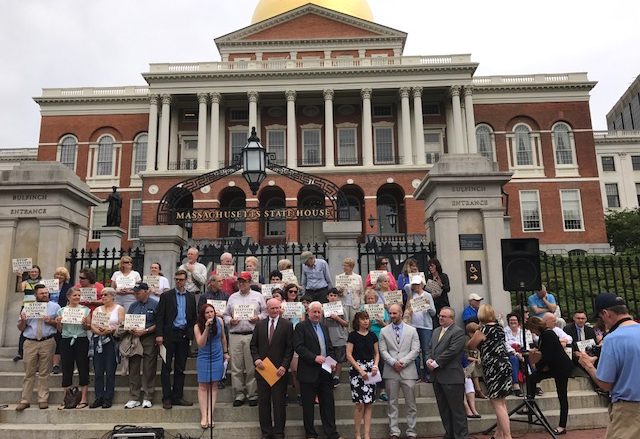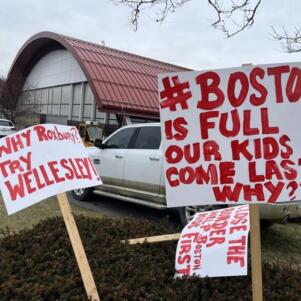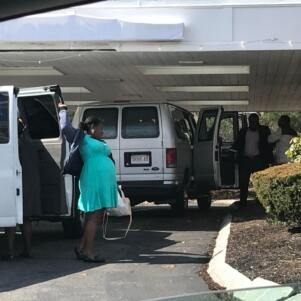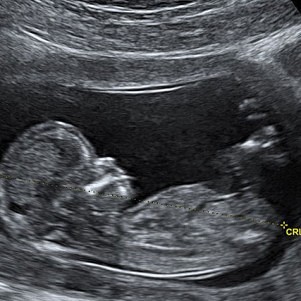When Pro-Life Promotes True Choice
By Joseph Tortelli | September 13, 2017, 8:13 EDT

The concepts of pro-life and pro-choice are routinely placed in opposition to each other, dueling philosophies competing for adherents. Pro-life prioritizes the protection of innocent human life above other claims; pro-choice demands individual autonomy above all else. In brief form, that sums up each position.
For obvious reasons, the political tension between the two is rarely minimized. Today, marks one such rare moment when pro-life activism also promotes genuine choice for the vast majority of citizens.
Under the banner of the Massachusetts Alliance to Stop Taxpayer Funded Abortions, volunteers in the pro-life movement are advocating a drive to provide greater choice with respect to taxpayer funding of abortion in Massachusetts. The state Supreme Judicial Court ruled in 1981 that all state taxpayers must pay towards the funding of abortions. According to the court, a taxpayer can cite neither individual conscience nor religious beliefs nor ethical standards nor scientific evidence in an effort to avoid paying toward the abortions of others. In other words, the state courts have denied choice to taxpaying families in the Bay State. In the question of who pays for abortions, coercion rather than choice is the judicial fiat of the Commonwealth.
This state mandate, of course, differs from the “law of the land.” The United States Supreme Court ruled long ago that nothing in the United States Constitution forces taxpayers to pay for abortions. On this matter, at least the high court is consistent. In Roe v. Wade, the court ruled that abortion may not be significantly restricted by states or the federal government. In follow-up decisions, it affirmed that access to abortion did not imply that every taxpayer must be required to pay for something which many regard as the taking of an innocent human life.
The bias of the United State Supreme Court has leaned toward a pro-choice position: Pro-choice for individuals who want abortions; pro-choice for taxpaying individuals and families who decide against funding them.
The majority of states have followed the federal Supreme Court lead and refused to levy taxes that pay for abortions. In Massachusetts, a more extreme pro-abortion view holds. Here, the so-called pro-choice side demands unlimited access to abortion-on-demand, while denying any choice or rights to taxpayers. Taxpaying families can forget about high-minded ideas such as rights or choice or freedom. The state court presents a distorted view of choice, when the “choice” that matters is limited to abortion, while coercion is used to distribute precious taxpayer resources.
In fact, the Massachusetts Supreme Judicial Court ruling prevents citizens from ending abortion funding through a simple law or referendum, as was recently done in legalizing marijuana. In order to overturn decades of marijuana enforcement in Massachusetts, only a simple referendum was required to legalize the status of the long-forbidden drug. Not so for the rights of taxpayers. Many more hoops must be passed through.
According to the SJC’s interpretation, those who want to restore the rights of taxpayers must hurdle the high bar of amending the state constitution. First, by December 6, 2017, the Massachusetts Alliance to Stop Taxpayer Funded Abortions and their Renew MA Coalition partners must gather at least 64,750 certified voters’ signatures to place a referendum on the ballot. Realistically, this demands tallying upwards of 100,000 total signatures, because opponents will seek to exclude many on technical grounds.
After the signatures are validated, the measure must twice go before both houses of the state legislature, sitting in joint session. In each of those sessions one-quarter of the entire legislature must vote to move the ballot question forward. In most states, that would not represent a difficulty. But in liberal Massachusetts whether 50 state senators and representatives will advance the rights of voters, taxpayers, and conscientious pro-lifers remains an open and troubling question.
Should the legislature vote in the affirmative, then the referendum is placed on the ballot for voters on election day in November 2020. Typically, those favoring forcing taxpayers to pay for abortions hold distinct advantages. Those promoting abortion consistently raise far more funds than pro-life and pro-taxpayer advocates; that financial advantage will give them far more money to spend on high-priced lobbyists and advertising to obfuscate the issue. Additionally, influential and powerful media outlets, especially The Boston Globe, will go all out to defeat an initiative that secures choice and conscience rights for taxpayers and pro-lifers.
It’s hard to imagine any state official or member of the congressional delegation leading the effort to restore taxpayer and conscience rights. To the contrary, most Democrat, along with many Republican, politicians will line up behind the pro-abortion-funding side.
The singular ray of hope for the pro-life volunteers shines from the dioceses of the Catholic Church, the one remaining significant statewide institution advocating for life, religious liberty, and conscience rights. Many remember the Church’s active opposition to the legalization of marijuana during the 2016 referendum campaign, including an $850,000 contribution from the Archdiocese of Boston to the anti-drug Campaign for a Safe and Healthy Massachusetts. As the petition drive and public debate over abortion funding revs up, the Church may decide to become active in an equally vigorous manner.
With so many power players and interest groups lined up against them, the coalition representing taxpayer and conscience rights faces a David-versus-Goliath challenge. But the volunteers are willing to make the effort. Echoing in their ears is a United States Supreme Court decision dating back two centuries to the earliest days of the Republic. “The power to tax,” wrote Chief Justice John Marshall in the precedent-setting McCulloch v. Maryland, “involves the power to destroy.”
In this case, the power to tax involves the power to destroy both life and choice.
Joseph Tortelli is a freelancer writer. Read other articles by Mr. Tortelli here.











